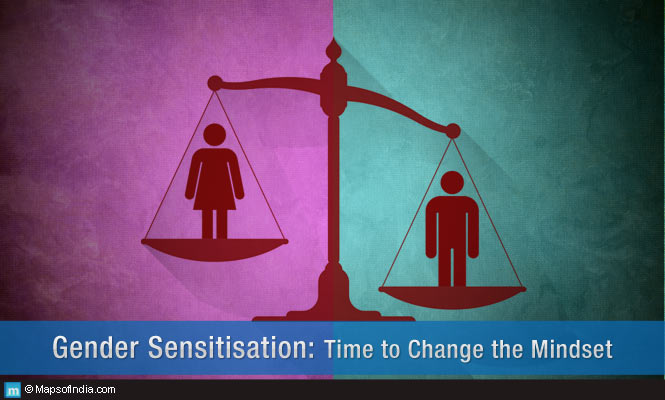The recent documentary on the Nirbhaya Rape which was aired on BBC created a furore because of the insensitive and gender-biased remarks made by both the rapist in question and his defence lawyers.
The documentary only highlights a medieval mindset and gender bias prevailing in our society, in both rural and urban areas. The problem with India is that there has been a complete lack of formal education on moral values and ethics, with education curriculum being restricted to academic subjects only. Thus the responsibility of teaching children moral values lies with the parents or the family as a whole.
Given the fact that our society is so diverse in its composition and social values, it is not surprising that there is a complete lack of a common reference point or standard that a family can refer to.
Views on the role of girls and later women in society vary from family to family and therefore children tend to have diverse views on the opposite gender which are mainly influenced by those prevailing in the family from where he or she comes.
And this is where the problem lies. The formal education system has failed to address this vital issue and not much attention has been given within the family either. So why should we be surprised to hear a rapist’s views that a woman should meekly give in to a rapist and then move on in life! Or his lawyer’s views that the responsibility or blame lies with the female once she steps outside her house on whether she could or could not be raped!
Both the rapist and his lawyers are victims of the family backgrounds that they come from. It won’t be surprising at all if other male, or for that matter, female members of their respective families happen to hold similar views.
One has to travel just 5 kms outside of Delhi, into UP or Haryana, and one can hear similar views from many households. So why it is that after 68 years of independence, Indian society is still steeped in medieval mindset?
School and college girls are being denied access to mobile phones and wearing of jeans is being frowned upon, while there is absolutely no restriction on the male counterpart. So why do we still view a girl child as a lesser human?
It is time for us to introspect honestly and try to recognize our failure as a family and society, in failing to produce citizens that view high moral and ethical standards as cornerstones of our life. Too often and too easily, we tend to shift the responsibility to the school instead of recognizing that foundational values always come from home.
Who Says Boys and Girls are Equal?
A recent survey highlighted the fact that when young school boys were asked who should sacrifice the meal in case it fell short on the table, most replied the mother as the first choice, followed by the sister. So who is responsible for a male holding the view that the first person to sacrifice a meal should be the mother and followed by the sister, as the second choice? Why male members are served meal first, in many homes, and the female members forced to eat what’s left?
As a society, we have failed to encourage thought and debate on this vital issue on gender sensitisation. A society can only be progressive if we recognize that it comprises both male and female members of equal value. This is not an issue of who plays what role. Roles can differ from society to society but what is universal is the fact that both males and females have equal relevance and all our decisions and actions that influence our lives must be in the backdrop of gender equality.
It is time we opened ourselves to introspection and recognize the fact that we are a gender biased society, at all levels, and that we must begin to focus on the values of gender parity in our homes. This is where the first step to being a progressive citizen begins. There can be no better place for moral and ethical education than home and the best student for the same is a child, for he or she is completely open to learning what is taught and practiced at home.
This has to be backed by all schools to ensure that every decision and action taken in the school ensures gender parity and mutual respect between the male and female student.
A good example of early education on gender parity is the ‘Kibbutz’ in Israel. These are communes where all children are brought up through collective parenting. While the concept of ‘Kibbutz’ may not be relevant to India, the approach to ‘gender parity’ right from childhood is what India must learn and adopt.
Parents and Schools Have to Come Together
Both the family and the school play an important part in a child’s development, therefore both need to come together and discuss ways to ensure that gender parity in thought and action is practiced at home and school. The school can play an important role in setting up guidelines and advise parents on gender sensitisation as also on various aspects of parenting, especially in the context of gender equality.
Time for Call-to-Action
It is regrettable that after 69 years of our ‘Independence’ we are still ‘slaves’ of medieval thought, practices and lifestyles. India has traditionally been a wonderfully open society in absorbing diverse cultures, religions and practices and therefore gender equality should have been the acceptable norm. Unfortunately, it has remained an exception and the documentary on Nirbhaya rape should serve as a call-to-action for our society to address this vital issue.
It is never too late to change for the better and change has to begin at home. We need to collectively ensure that our legacy to the younger generation gives an equal opportunity to all. The next generation is growing up fast and we owe it to them.





